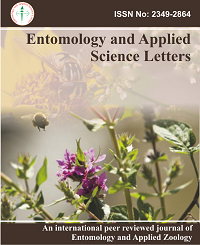
Applied Science Letters


The current changes in high education in the context of globalization have affected the educational institutions of all countries extensively. In the context of globalization, representation of national systems of high education in the world’s educational space determines their competitiveness. Today, the education, along with its traditional functions by transferring knowledge, has been also considered as a market. In the context of growing competition between universities in search of students, it is necessary to overcome language, mental, national, cultural, historical and pedagogical barriers. However, within these barriers, there has been still an overwhelming majority of the universities both in all countries including the Republic of Kazakhstan. In order to interact constructively in spite of these barriers, it is needed to take a step to make a planetary noosphere by the educators. In the process of the teacher-student relationship the growth of "self" in both of them, and its development take place. Considering the forms of internationalization and integration, actively participating in international student exchange programs, project activities, sandwich programs and other forms, the current generation of future Kazakhstan teachers has shown a certain willingness to go beyond the stereotypes and restrictions accepted in the society. The purpose of this study was to examine the process of formation of the transcultural competence in future educators as a tool of developing the students’ "self" personality, and propose practical ways of its formation in the context of university education. The transcultural competence of the personality has been a mix of puzzles that have been formed of the heterogeneous and, at first sight, chaotically combined elements of the self in the consciousness of an individual at the moment of their demand. It would allow an individual, in a supracultural space, to overcome the subjectivity of evaluating "one's own" and "others’", seeing their differences, retaining each of them and taking an individual position in the communication of cultures. The article highlighted the results of the approbation of teaching methods aimed at the formation of the transcultural competence of the individual.
The projective dictionary of humanities / M.N. Epstein. - M .: New Literary Review, 2017. - 616 p.
El-Ojeili Ch., Hayden P. Critical Theories of Globalization.-New York, Palgrave Macmillan, 2006.
Giddens.A. The Third Way, The Renewal of Democracy.- Cambridge, Polity Press, 1998.- p.30-31;
Abashin S. Cultural processes and transcul-tural influences in modern Central Asia [Elec-tronic re-source]:www.opensocietyfoundations.org/sites/default/files/russian_20090515_0 (дата обращения 07.10.20016);
Philip G. Altbach, Jane Knight. The Interna-tionalization of Higher Education: Motiva-tions and Realities. Journal of Studies in In-ternational Education Fall/Winter 2007 vol. 11 no. 3-4, p.290-305
Peter G. Ghazarian, Mia S. Youhne. Exploring Intercultural Pedagogy Evidence From Inter-national Faculty in South Korean Higher Edu-cation. Journal of Studies in International Ed-ucation November 2015 vol. 19 no. 5, p. 476-490
Jacky Lumby, Nick Foskett. Internationaliza-tion and Culture in Higher Education, Educa-tional Management Administration Leader-ship January 2016 vol. 44 no. 1, P.95-111.
M.G. Durham, D. Kellner. Media and Cultural Studies. Rte Works.-Oxford, Blackwell Pub-lishing, 2006.-p.34
J. Beynon, D. Dunkerly. Globalization: The Reader.-New York, Routledge, 2000.-p.110
N.R.F. Al-Rodhan, G. Stodmann “Definitions of Globalization: A Comprehensive Overview and a Proposed Definition. Geneva Centre for Security Policy, 2006, p.19
Johann Gottfried Herder, "Ideas for the Phi-losophy of the History of Humanity", ed. by Martin Bollacher, Frankfurt am Main. 1989th.
Syutkina I.S. Transcultural approach in pro-fessional-oriented learning of a foreign lan-guage. - Scientific and Methodological Journal "Foreign Languages at School", No. 9, 2015.-p.49-54.
Rakisheva G., Abibulaeva A, Karabulatova I. Ethno-Sociocultural Deviations in the Educa-tional Environment of the Modern Eurasian Higher Education Institution as a Reflection of Transcultural Globalization Factors.-Man in India, №97 (23), 2017, рр. 115-131.
Sholokhov I.A. Psychological features of ad-aptation studied younger than abroad. -Thesis abstract for the degree of candidate of psycho-logical sciences, 2002.- 26 p.
Rakisheva G.M., Abibulayeva A.B. Individu-al’s transcultural Competence as a Balancing Mechanism between the “global” and the “lo-cal”, Materials of the 4th International Con-ference on the Transformation of Education, London, 23-29 May 2016. -p.123-133.
A. Fantini, Exploring Intercultural Communi-cative Competence: A Multinational Perspec-tive. Federation EIL, Brattleboro, Vermont, USA, 2006.
Crosley M.L. Narrative psychology. Self, psy-chological trauma and the construction of meanings. - X .: “Humanitarian Center”, 2013.284 p.
Stukalenko N., Rakisheva G. Implementation of Competence Approach in the Professional Education of Prospective Teachers in the Higher Education Conditions. International Review of Management and Marketing, 2016, 6(S3).- P.175-181.
V. S. Bibler, S. Yu. Kurganov, V. F. Litovskiy, “School of dialogue of cultures.” Ed. by V. S. Bibler. – Kemerovo: ALEF, 1993, 416p. (In Russian).
